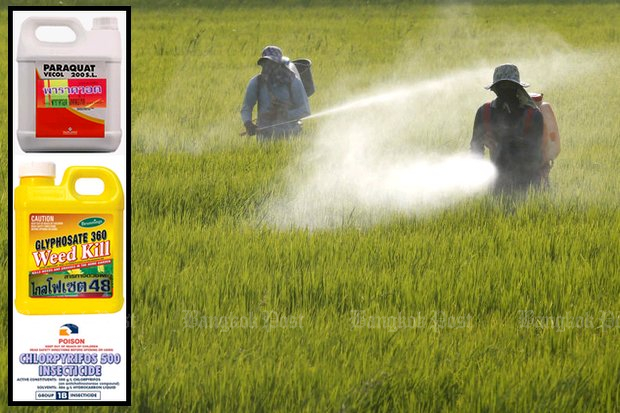
The national committee on hazardous substances has rejected a request by a network to support a total ban on the use of three toxic agricultural chemicals, namely paraquat, glyphosate and chlorpyrifos in Thailand.
The committee held a special meeting Thursday to consider the network's request, which has also received support from the Public Health Ministry and the Office of the Ombudsman. Last December, the Ombudsman submitted its suggestion to the panel that it should ban paraquat by Jan 1, 2020.
The network, which consists of almost 700 organisations from across the country, says it is mulling whether to appeal to the Central Administrative Court against the decision.
However, the committee meeting chaired by deputy permanent-secretary for industry, Apichin Jotikasthira disagreed with the petition, saying it was only supporting the use of paraquat, glyphosate and chlorpyrifos in farming areas until new substances can replace the chemicals.
Mr Apichin said the panel will evaluate the controlled use of the chemicals every three months to see whether control measures are effective. "We will reconsider the matter in two years in regards to whether we will ban them or not," he said.
He said the Ministry of Agriculture and Cooperatives will issue regulations on control of the use of the substances, including limiting exports, restrictions on which areas and on which plants they can be used, and which shops will be licensed to sell them.
Mr Apichin said the committee had spent four hours discussing the petition and agreed improper use of any hazardous substances would have impacts on people's health and the environment.
The authorities would have to make sure the direct users of those chemical substances realise how to use them properly, he said.
The Department of Agriculture is the prime state agency that will help provide information on the proper use of the chemical substances.
Prokchol Ousat, coordinator of Thai-PAN, one of the organisations in the network, said she was disappointed with the committee appeared not to care about the people's health and environment.
"The network is considering to appeal to the court," he said.